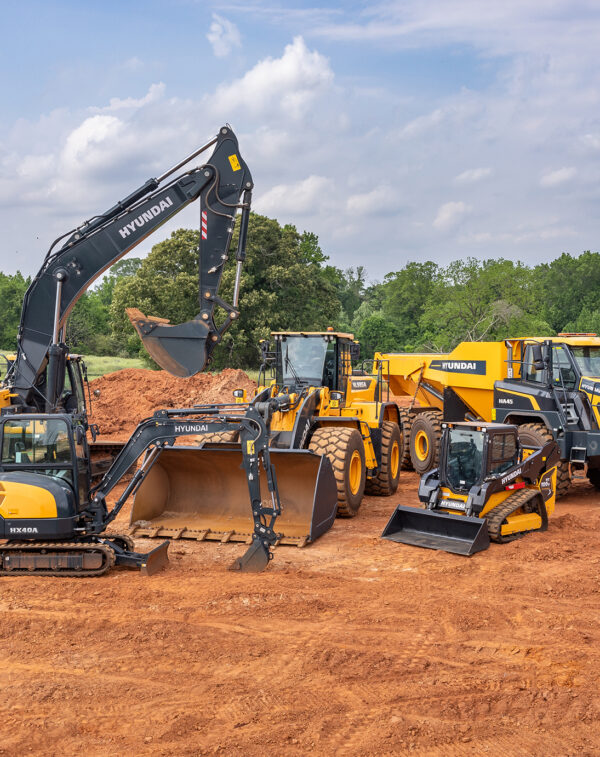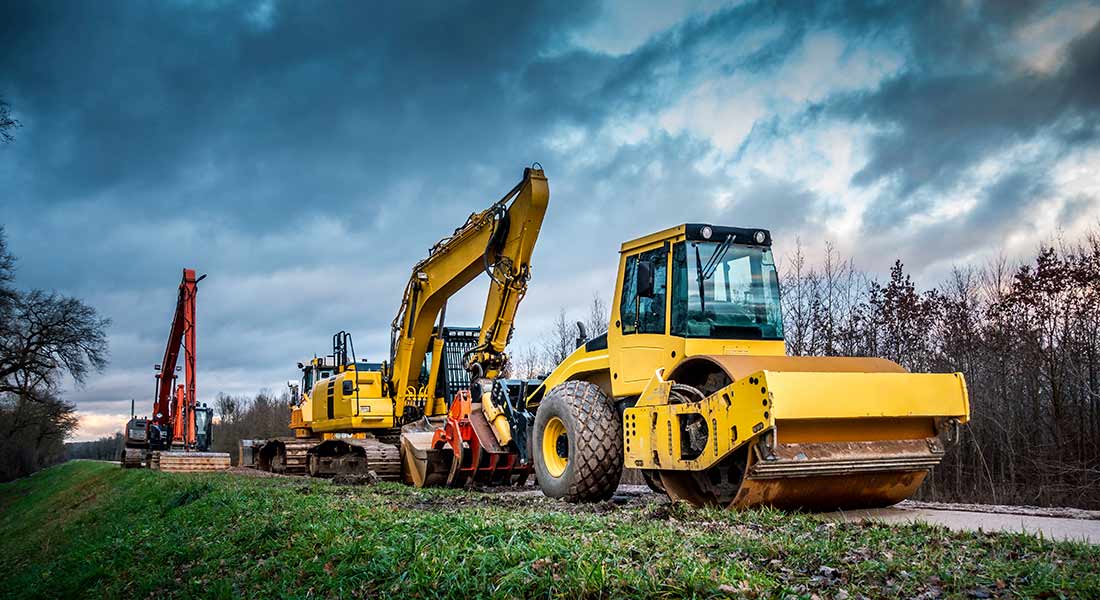Forklift Rental in Tuscaloosa AL: Versatile Training Solutions for Your Demands
Forklift Rental in Tuscaloosa AL: Versatile Training Solutions for Your Demands
Blog Article
Checking Out the Financial Conveniences of Renting Construction Devices Compared to Owning It Long-Term
The choice between owning and renting out building and construction devices is pivotal for economic monitoring in the market. Renting deals immediate price financial savings and functional flexibility, permitting business to assign sources a lot more successfully. Comprehending these nuances is essential, particularly when considering how they line up with particular task requirements and financial methods.

Cost Contrast: Leasing Vs. Having
When evaluating the economic ramifications of renting versus possessing building and construction devices, an extensive cost contrast is crucial for making informed choices. The choice in between leasing and owning can dramatically influence a firm's profits, and understanding the linked costs is essential.
Renting construction tools typically involves lower ahead of time costs, permitting services to assign resources to other functional needs. Rental contracts often consist of adaptable terms, allowing business to access advanced equipment without long-term commitments. This adaptability can be particularly beneficial for temporary jobs or fluctuating workloads. Nevertheless, rental prices can build up gradually, possibly surpassing the expense of possession if equipment is required for an extensive duration.
Alternatively, owning construction equipment requires a considerable preliminary investment, together with continuous costs such as depreciation, insurance coverage, and financing. While possession can lead to long-lasting savings, it also links up resources and might not supply the same level of flexibility as renting. In addition, having devices necessitates a dedication to its use, which may not always line up with job demands.
Inevitably, the decision to rent out or possess ought to be based upon an extensive evaluation of certain project needs, economic capability, and lasting tactical goals.

Maintenance Expenses and Responsibilities
The selection in between leasing and having building and construction devices not just involves financial factors to consider however likewise encompasses recurring upkeep costs and responsibilities. Possessing devices calls for a considerable commitment to its maintenance, which consists of routine inspections, fixings, and prospective upgrades. These responsibilities can rapidly collect, resulting in unexpected expenses that can strain a spending plan.
In contrast, when renting devices, maintenance is commonly the responsibility of the rental firm. This plan enables professionals to avoid the monetary burden linked with wear and tear, along with the logistical challenges of scheduling repairs. Rental contracts frequently consist of stipulations for upkeep, meaning that specialists can concentrate on completing projects instead than worrying regarding tools condition.
In addition, the diverse variety of tools readily available for rental fee enables business to pick the newest designs with innovative technology, which can improve performance and productivity - scissor lift rental in Tuscaloosa Al. By choosing for rentals, organizations can stay clear of the long-lasting responsibility of tools depreciation and the associated maintenance migraines. Ultimately, evaluating upkeep expenditures and duties is crucial for making a notified choice about whether to have or lease building equipment, dramatically influencing overall job prices and operational effectiveness

Devaluation Influence On Ownership

A substantial aspect to take into consideration in the choice to own construction devices is the impact of depreciation on overall ownership expenses. Depreciation represents the decline in value of the equipment in time, affected by variables such as use, deterioration, and improvements in modern technology. As devices ages, its market price diminishes, which can considerably affect the owner's financial setting when it comes time to trade the devices or market.
For building and construction business, this devaluation can translate to significant losses if the devices is not utilized to its greatest capacity or if it lapses. Owners must make up depreciation in their economic projections, which can bring about higher total costs contrasted to renting. In addition, the tax effects moved here of depreciation can be intricate; while it may supply some tax obligation benefits, these are usually balanced out by the fact of decreased resale worth.
Ultimately, the problem of devaluation highlights the relevance of understanding the long-lasting financial dedication associated with having construction devices. Firms must very carefully review how commonly they will certainly use the devices and the potential monetary influence of depreciation to make an educated choice concerning possession versus renting.
Monetary Versatility of Renting Out
Renting construction devices offers considerable economic adaptability, permitting companies to assign resources a lot more successfully. This flexibility is specifically important in a market identified by varying job needs and differing work. By choosing to lease, organizations can stay clear of the significant resources expense needed for acquiring devices, maintaining cash money circulation for various other functional requirements.
Furthermore, leasing devices enables companies to tailor their equipment selections to particular job requirements without the long-term commitment linked with possession. This suggests that organizations can conveniently scale their devices stock up or down based on anticipated and current task demands. As a result, this versatility reduces the threat of over-investment in equipment that may become underutilized or out-of-date with time.
One more economic advantage of renting out is the possibility for tax advantages. Rental settlements are typically thought about operating budget, enabling instant tax reductions, unlike depreciation on owned and operated devices, which is spread over numerous years. scissor lift rental in Tuscaloosa Al. This instant expenditure acknowledgment can further boost a business's cash money setting
Long-Term Project Factors To Consider
When assessing the lasting requirements of a construction service, the decision in between renting and having equipment ends up being more complicated. Key aspects to take into consideration consist of job duration, frequency of use, and the nature of upcoming tasks. For projects with extensive timelines, purchasing devices might seem useful due to the capacity for reduced overall expenses. Nonetheless, if the devices will certainly not be made use of regularly throughout tasks, owning might bring about underutilization and unnecessary expense on storage, upkeep, and insurance policy.
Furthermore, technological improvements present a considerable factor to consider. The building market is progressing quickly, with new read what he said equipment offering enhanced efficiency and safety functions. Leasing enables companies to access the current technology without committing to the high ahead of time prices connected Full Report with acquiring. This versatility is particularly beneficial for businesses that take care of varied jobs requiring various kinds of equipment.
Moreover, financial security plays an important duty. Possessing devices frequently requires considerable capital expense and devaluation issues, while renting out enables for even more predictable budgeting and capital. Inevitably, the choice in between owning and leasing needs to be lined up with the critical objectives of the building business, considering both anticipated and present project needs.
Verdict
In verdict, renting out building and construction tools supplies significant economic benefits over lasting possession. Inevitably, the choice to lease instead than very own aligns with the dynamic nature of construction projects, permitting for flexibility and accessibility to the most current devices without the financial burdens linked with possession.
As devices ages, its market value decreases, which can considerably affect the proprietor's economic setting when it comes time to trade the equipment or market.
Leasing building equipment offers substantial monetary flexibility, allowing firms to assign resources extra effectively.Additionally, renting tools allows firms to customize their equipment selections to certain project needs without the long-lasting dedication connected with ownership.In final thought, renting building and construction devices offers considerable financial benefits over lasting ownership. Eventually, the choice to rent out rather than very own aligns with the dynamic nature of building and construction jobs, allowing for versatility and accessibility to the most current equipment without the monetary burdens connected with possession.
Report this page